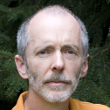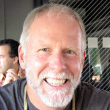Course instructors
Felix Kienast
Felix Kienast has been Adjunct Professor for Landscape Ecology at the Department of Environmental Sciences at ETH Zurich since March 2007. He holds a PhD in Geography from University of Zurich. In the 1980s he pioneered Landscape modeling research at the …
Gregor Martius
Gregor Martius holds a Master Degree in Environmental Science and in Software Engineering. He has specialized in the design and development of innovative educational projects. For this MOOC on Landscape Ecology he has contributed to the course design, the…
Harini Nagendra
Harini Nagendra is a Professor of Sustainability at Azim Premji University, Bangalore, India. She is an ecologist with over 25 years of experience working in the global south. Her main focus of interest is to understand when and why humans act as positive…
Janet Silbernagel
Janet Silbernagel is a professor for landscape ecology with a design background, specializing in landscape conservation strategies, applying landscape ecological theory, scenario modeling, and geospatial analyses. She is director of professional graduate …
Josef Senn
Josef Senn is a researcher at the Swiss Federal Research Institute WSL, Birmensdorf, and a Lecturer at ETH Zurich at the Department of Environmental Systems Sciences. His main research interests are in in the fields of plant-herbivore interactions, wildli…
Loïc Pellissier
Loïc Pellissier has been Assistant Professor (with Tenure Track) of Landscape Ecology at the Institute of Terrestrial Ecosystems at ETH Zurich and at WSL since July 2015. Loïc Pellissier studied at the University of Lausanne and completed his PhD in 2012.…
Selina Gosteli
Selina Gosteli is currently finishing her master studies of spatial planning at ETH Zurich. Before this she studied environmental sciences in my bachelors and that’s where she first learned about landscape ecology. Landscapes are still an important part o…
Shekoufeh Nematollahi
Shekoufeh Nematollahi is a PhD student of Environmental Sciences and Land Use Planning at Isfahan University of Technology (IUT), Iran. In herPhD thesis she assesses the ecological impacts of road networks on natural habitats based ecosystem services mode…
Sima Fakheran
Dr. Sima Fakheran is Assistant Professor of Environmental Sciences at Isfahan University of Technology, Iran. She is Vice President of International Association for Landscape Ecology (IALE). She did an outstanding job in setting up the Iranian regional ch…
Thomas C. Edwards
Thomas Edwards is a Research Scientist with the U.S. Geological Survey, and a Professor in the Quinney College of Natural Resources, Utah State University. As a professor at Utah State University, he teaches courses on research design and analysis. Profes…










